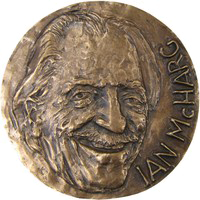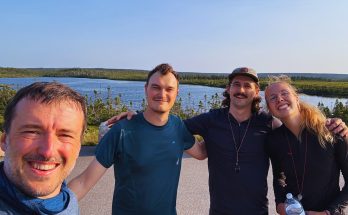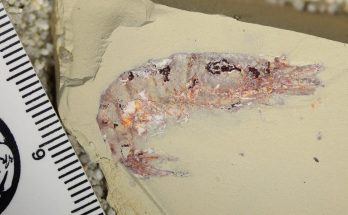Cette publication est également disponible en :
![]() Français
Français
The EGU Ian McHarg 2022 Medal was awarded to Mikhail Kanevski for his outstanding work in environmental data processing, integrating geostatistics, machine learning algorithms and other digital transformations.
Mikhail Kanevski is Honorary Professor at IDYST in the Geosciences and Knowledge Discovery in Data research group.
His scientific interests cover a wide range of topics: geographic information science, environmental modeling, spatial statistics, time series forecasting, machine learning and data mining. The main applications are in natural hazards, pollution, and renewable energy analysis and assessment. On the occasion of the awarding of this medal, Mr. Kanevski tells us about his research field.
You obtained a PhD in plasma physics. Why did you turn to geosciences afterwards?
The triggering event was the accident at the Chernobyl nuclear power plant. Following this event, many questions were addressed to scientists in order to determine how to deal with the damage caused and the pollution that followed. I was thus led to model the environmental risks of pollution by radioactivity.
Then the scientific curiosity and the very interdisciplinary aspect of the field of geosciences and environment encouraged me to remain in this field. Twelve years after my thesis, I obtained a habilitation in the field of environment and data analysis.
What has been your career path within the FGSE?
Since 1993, I have collaborated a lot with Michel Maignan, (currently Honorary Professor at ISTE), with whom we have developed many projects related to environmental data and risk analysis. In 2004 I was hired at UNIL in the newly created FGSE. My FNS projects were oriented towards fundamental questions of data analysis and modeling using statistics, geostatistics and machine learning. The applications of the projects were: topo-climatic modeling and different types of natural hazards: avalanches, forest fires, landslides, pollution (air, soil, indoor radon). In particular, we have established risk maps that could be used as a reference for the decisions taken in the management bodies of the territory. Then the projects have evolved in parallel with the technologies and tools available to move towards the processing of more and more data and artificial intelligence.
How has your field of research evolved over the last 10 years?
The tools have of course evolved a lot: the amount of data available as well as their quality has greatly increased thanks to satellites and monitoring networks. In Switzerland in particular, the density and quality of data is very good. At the same time, computer tools and computing power have made it possible to process this data in an increasingly complex and detailed manner. During my career in FGSE, the field of data sciences has known different waves alternating enthusiasm and disappointment. Nowadays it has become a “basic” tool for many researchers.
What are the limitations of data science?
Whatever the analytical performance, the most important thing is the starting question and hypothesis. The problem must be clearly identified and the question correctly posed for the data processing to provide a valid answer. Next, it is important to ensure the quality and relevance of the data collected, and to know how to interpret the relationships obtained between the various parameters studied. Today, cause and effect relationships can be deduced automatically from the results obtained through data processing and advanced algorithms. In this sense it is important to be able to rely on a good knowledge of the rules and equations of geophysics, geochemistry or other, which define the mechanisms and allow a good interpretation of the results. Today interpretability and explicability of the data science results (how and why an algorithm takes a particular decision), especially obtained by machine learning, are one of the major challenge.
What does this medal represent?
This award is a recognition of the work of a whole team that has contributed a lot to the field. The many theses and projects I have supervised have continually advanced my research. I am excited to see the new generation of researchers who are now coming up with a very interesting background and complete training in both geosciences and data analysis. This will undoubtedly change the field and the way the issues are approached. Over the years, accompanying young researchers has been as much a pleasure as a job.
Mikhail Kanevski will receive his medal on May 23, during the General Assembly of the EGU in Vienna.




